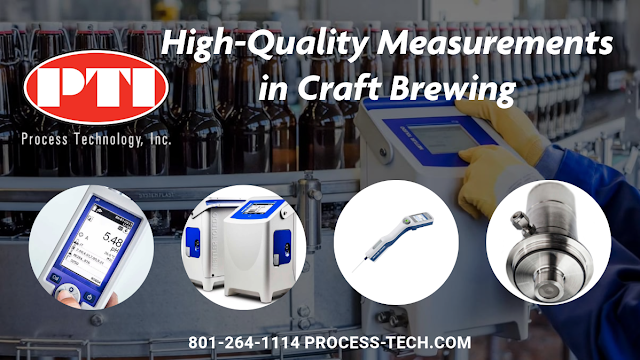1. pH Measurement:
pH plays a crucial role in the brewing process, as it affects enzyme activity, yeast health, and the overall flavor and stability of the final product. Accurate pH measurement is essential during mashing, as the optimal pH range (5.2-5.6) ensures efficient starch conversion and extraction of fermentable sugars. During fermentation, yeast activity can cause pH shifts, which need monitoring to prevent off-flavors and ensure consistent fermentation. High-quality pH meters with automatic temperature compensation and calibration capabilities help brewers maintain tight control over pH levels, resulting in better product consistency and quality.
2. Dissolved Oxygen (DO) Measurement:
Oxygen plays a vital role in yeast health and fermentation, but excessive oxygen exposure can lead to oxidation and the development of stale, cardboard-like flavors in the finished beer. Measuring dissolved oxygen levels at various stages of the brewing process, particularly before and after fermentation, helps brewers ensure that their beer is not over-exposed to oxygen. High-quality DO meters with fast response times and minimal drift provide accurate and reliable measurements, allowing brewers to make informed decisions about oxygen management and prevent oxidation-related quality issues.
3. Dissolved CO2 Measurement:
Dissolved carbon dioxide (CO2) is responsible for beer's carbonation and mouthfeel. Accurate measurement of dissolved CO2 helps brewers achieve the desired level of carbonation for each beer style and maintain consistency across batches. High-quality dissolved CO2 meters with automatic pressure and temperature compensation provide precise measurements, enabling brewers to fine-tune their carbonation levels and ensure that their beers balance bubbles and creaminess.
4. Gaseous Oxygen Measurement:
In addition to dissolved oxygen, monitoring gaseous oxygen levels in the headspace of fermentation tanks and packaging lines is critical for preventing oxidation and ensuring beer quality. High-quality gaseous oxygen analyzers with low detection limits and fast response times allow brewers to quickly identify and address any oxygen ingress issues, minimizing the risk of oxidation and preserving their beers' freshness and flavor stability.
5. Conductivity Measurement:
Conductivity measures the total dissolved solids in water, which can impact beer's flavor, mouthfeel, and stability. Monitoring conductivity during brewing helps brewers ensure that their water chemistry is consistent and appropriate for each beer style. High-quality conductivity meters with automatic temperature compensation and wide measurement ranges provide accurate and reliable measurements, enabling brewers to decide about water treatment and ingredient additions.
6. Turbidity Measurement:
Turbidity, or beer's cloudiness, is an essential quality parameter that affects the final product's appearance and perceived quality. While some beer styles, such as hefeweizens, are intentionally cloudy, most beers are clear and haze-free. High-quality turbidity meters with low detection limits and good repeatability allow brewers to monitor the clarity of their beers throughout the brewing process and make necessary adjustments to ensure that their beers meet customer expectations for appearance and quality.
Investing in high-quality instruments for pH, dissolved oxygen, dissolved CO2, gaseous oxygen, conductivity, and turbidity measurements is crucial for craft breweries seeking to produce consistently high-quality beers. By accurately monitoring and controlling these critical parameters, brewers can optimize their processes, prevent quality issues, and deliver exceptional beer experiences to their customers. As the craft brewing industry continues to grow and evolve, those breweries that prioritize quality and invest in reliable measurement solutions will be well-positioned to succeed in an increasingly competitive market.
Process Technology, Inc.https://process-tech.com
801-264-1114
